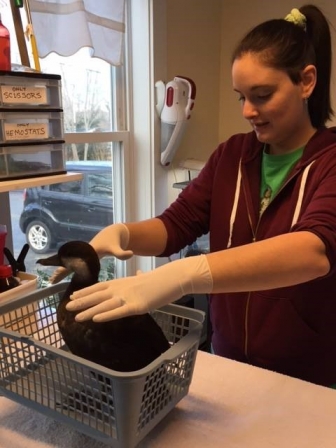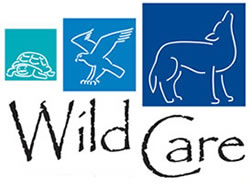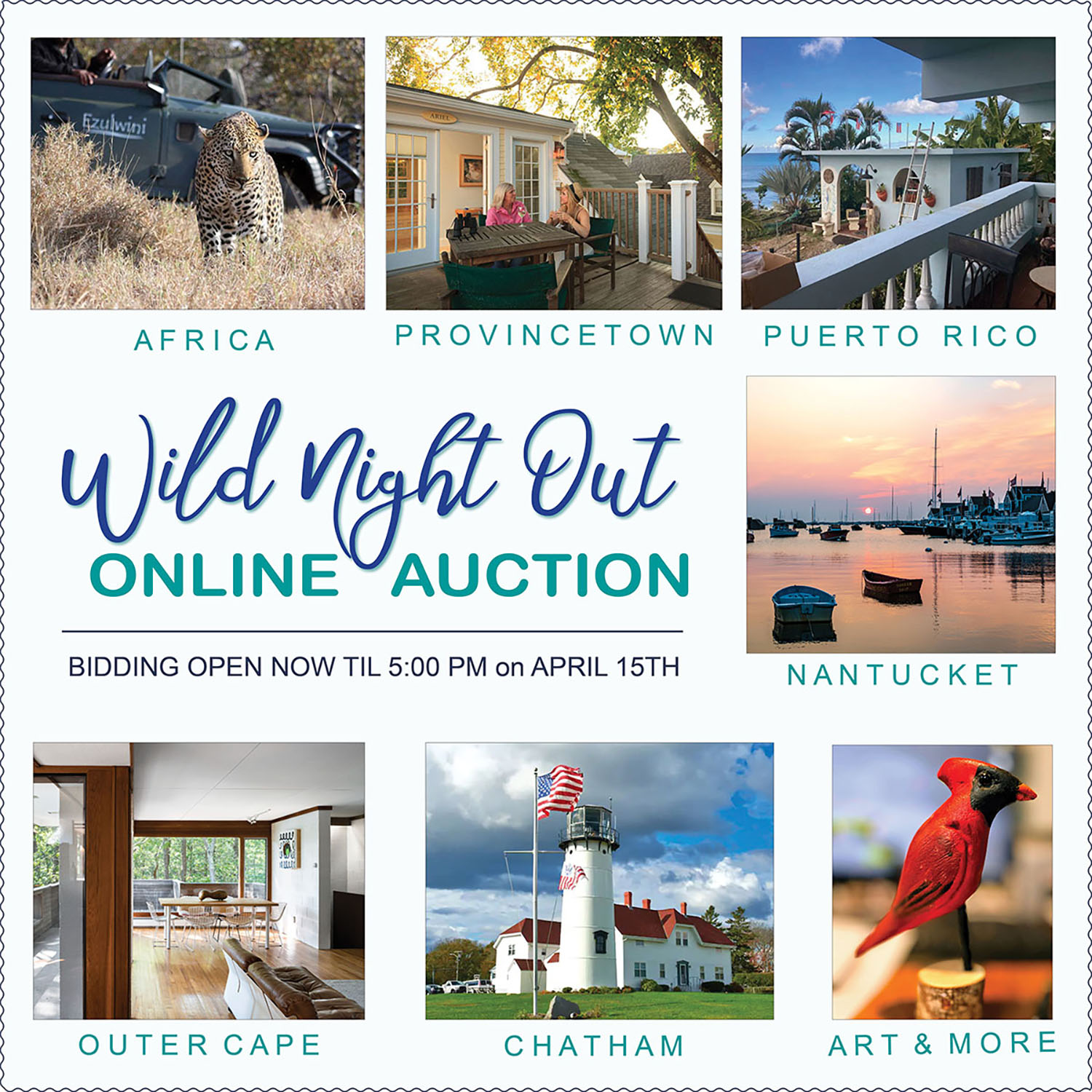
A Tale of Two Ducks – Seaward Bound!
Wild Care is a premiere, wildlife rehabilitation center, operating out of a yellow farmhouse just off the Orleans Rotary. This winter, the rehabilitators at Wild Care have volunteered to share some of their work with Cape Cod Today’s readers.
Today’s piece is written by Jennifer Taylor, Wild Care’s Animal Care Coordinator.
A Tale of Two Ducks – Seaward Bound!
Wild Care currently is treating two Black Scoters as patients. They came in separately within a few weeks of each other. The male scoter (with the bright yellow bill) was found beached on Nauset Beach in Orleans. The bird was missing the distal tip of his lower beak. The female was found in the parking lot of Beachcomber in Wellfleet. Not the usual hangout for a sea duck! They both arrived dehydrated, emaciated, hypothermic, and had wounds.
Black Scoters are sea ducks that migrate south to our waters from the tundra in winter. The brilliant yellow knob at the base of the male’s bill has coined them the nickname of “Butterbill” by early 19th century waterfowl hunters. They are diving ducks who eat mainly mollusks, marine worms and crustaceans. They can be seen here in large flocks called rafts off many beaches, marshes and fresh water ponds often coexisting with other species. If they have beached themselves at this time of year -(non breeding)- they are not well.
Scoters are very social and combining this male and female after they stabilized has benefitted both! They enjoy swimming together in our warm water therapy pools, and preening their feathers in the drying pens (these are pens that are kennels, or soft-sided, we blow a hot air pet dryer on them to help their feathers to dry). Their interaction with each other can expedite their recovery time by stimulating them to eat and preen more. Unfortunately, seabirds can become depressed to the point where they fail to thrive in clinic situations due to stress. (They do not understand we are helping them). Comradery really can make ALL the difference!
We are hoping to release these two together into a raft of Scoters within the next ten days. They have recovered from their wounds and are eating well. The male is able to preen his feathers and eat well, despite the fractured lower mandible. After the male gains a little more weight and they both pass their waterproofing test they will go back to the sea.
All gallery photos are courtesy of Wild Care.
Wild Care in Eastham networks with other wildlife facilities and several local veterinarians. We thank New England Wildlife Center’s Dr. Rob Adamski for his expertise in assessing our male scoter’s fractured bill.
Read the full article here: http://www.capecodtoday.com/article/2016/12/20/229764-Tale-Two-Ducks-Seaward-Bound
Wild Night Out Online Auction
READY, SET, BID… We are so excited to announce that our Wild Night Out Online Auction is now live!
READ ALL NEWS
CALENDAR OF EVENTS
04 April, 2024
Wild Night Out Online Auction
EVENT DETAILS
05 April, 2024
Wild Night Out
EVENT DETAILS
28 February, 2024
Wildlife Winter/Spring Talk Series
EVENT DETAILS

DID YOU KNOW??
Wild Care has a state-of-the-art seabird therapy pool, which allows seabirds and waterfowl to exercise on running water. This will help our bird friends recover more quickly so they can get back to their watery habitats!

